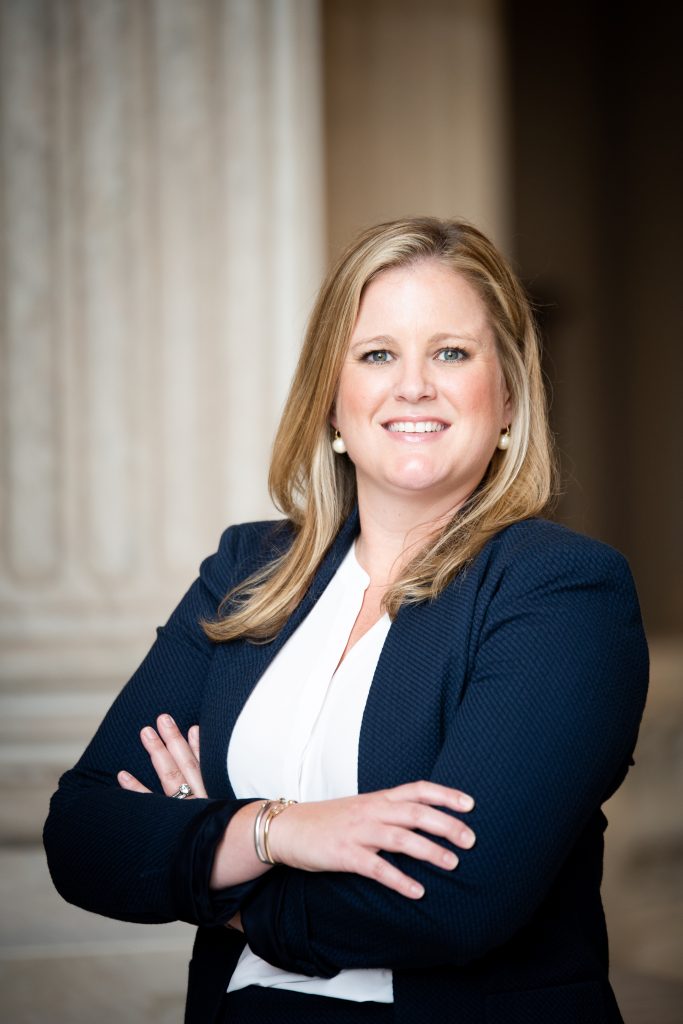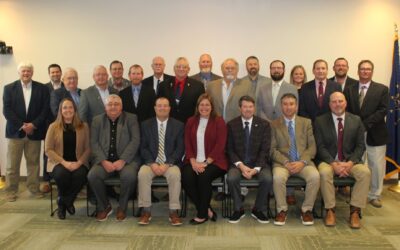Farmer advocates navigating unprecedented times and push for increased bipartisanship
By Brooke S. Appleton, Vice President of Public Policy
National Corn Growers Association

As I recently sat in my car in 90-plus degree weather, blocked by traffic caused by the NATO meeting in Washington, my mind kept moving from song to song.
One minute, I was hearing the 1981 hit “Under Pressure” and the next I was thinking about Diamond Rio’s 1991 country tune “Meet in the Middle.”
One could argue that these songs were buzzing in my head because of the pressure of being stuck in traffic for over an hour during a heat wave. But I am convinced it had more to do with the political climate in Washington, which is highly partisan and continues to present one unprecedented event after another.
We now have less than 50 legislative days left before either chamber of Congress adjourns for the year and one presidential campaign is on shaky footing after the debates while the other still reels from legal issues. Overall, the city is quickly moving into campaign overdrive with the upcoming Republican Convention. Besides the Presidential rat-race and the “veep” stakes, it’s tempting to turn focus entirely into planning for post-election outcomes and next year.
Yet, there is so much important work to do before Congress adjourns. We need a farm bill passed that is comprehensive, and, on the ethanol front, we are pushing for movement on the Next Generation Fuels Act and passage of legislation to allow for year-round consumer access to higher blends of corn ethanol.
We also have numerous trade issues to deal with, including a need to address and prevent burdensome tariffs and work to cultivate new foreign markets for corn growers.
And the chorus sings: “Pressure pushin’ down on me. Pressin’ down on you. Under pressure.”
To make matters more complicated, there is growing uncertainty about who will receive the Democratic nomination. Several elected Democrats have indicated that they are losing confidence in President Biden after a recent debate performance that raised doubts about his viability as a candidate.
So far, the president has resisted calls to step aside, but the Democratic Party could be heading toward a brokered convention this summer. While it would make for exciting television, such a development would complicate our jobs as corn grower advocates. It’s hard to develop a comprehensive plan on how to sell our policy agenda when we don’t know to whom we will sell it.
So how do we move forward?
We are soldiering through the uncertainty and focusing on progress on our pending priorities with those who are currently in charge. Elected officials know the calendar is tight, but they must hear from us that our items are urgent, and we need them to act. We want them to feel the pressure.
Next week, we will lead hundreds of corn growers through the power corridors of Washington to meet with members of Congress and agency officials. Our message: We need Congress to act on our priorities.
We are also sending representatives to both political conventions where we will hold events and talk about the value of corn. And we are engaging in an aggressive digital advertising campaign airing in Washington and key battleground states. The ads talk about the many contributions of corn growers.
Most importantly, no matter where we go or who we meet, we will continue to encourage bipartisanship as a means of securing legislative wins.
After all, the manual for navigating tumultous times was included in a song three decades ago when the political environment was, well, more predictable:
“We’d gain a lot of ground ’cause we’d both give a little. And their ain’t no road too long When we meet in the middle.”
NCGA reacts to 2, 4-D petition
The National Corn Growers Association, joined by five other commodity groups, sent a letter to Department of Commerce Secretary Gina Raimondo asking her to consider the impacts on farmers as she reviews a petition by the agricultural chemical company Corteva that would place duties on imports of the herbicide 2,4-D.
“Restricting imports of 2,4-D will have wide-ranging consequences for farmers,” the letter said. “American farmers cannot solely rely on Corteva, which is the only domestic supplier of 2,4-D, because there is not enough supply to meet demand.”
The letter also said that, if granted, the petition would cause availability shortages and hamper the ability of growers to be successful.
“Restricting the availability of 2,4-D will be very harmful at a time when farmers are grappling with rising input costs and low commodity prices,” the letter said.
The USDA projects total farm production cash expenses for 2024 at a record-high level. Concurrently, crop values are declining. USDA predicts total cash receipts in nominal value for crops in 2024 will be 11.7 percent lower than in 2022.
“Farmers are unable to incur additional costs in what is already a period of tight margins,” the letter said. “This case has the potential to forcibly cause farmers to cut budgets, which will impact their ability to have successful yields and will further disrupt the economic health of local economies.”
Other groups signing the letter were the American Soybean Association, National Association of Wheat Growers, National Barley Growers Association, National Sorghum Producers and U.S. Durum Growers Association. The Department of Commerce is expected to issue the preliminary duty rates in September.
Posted: July 20, 2024
Category: ICGA, Indiana Corn and Soybean Post - July 2024, News




